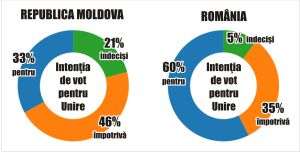
Greece's national motto is "Freedom or death", and the title of the state hymn is "Hymn to Freedom". On March 25th, the Greek republic celebrates its National Day, which marks the beginning of the Independence War of 1821, which led to its escape from the 400-year domination of the Ottoman Empire.
But it was a different day of March 25th that made the headlines of the European publications, the one which celebrates 60 years from the signing of the Rome treaty.
In his book "War and peace and war: The rise and fall of empires" of 2007, professor Peter Turchin wrote that "the map of the six countries that signed the Rome Treaty overlaps almost perfectly with the empire of Charlemagne". "Is the EU a new kind of empire?", Turchin asks and emphasizes that "the peaceful expansion of the EU is unprecedented in history, because, in the end, all historical empires have been forced to answer by force to internal and external threats".
Turchin's book was published before Jose Manuel Barroso, the president of the European Commission at the time, gave him the answer. "Sometimes I like to compare the European Union with a process of creating an imperial organization", said Barroso in July 2007, saying that "we have the first non-imperial empire in history".
Where is this " non-imperial empire" 60 years after its foundation has been laid? Very near to another historic performance, in terms of the speed of its disintegration.
It is true that Greece has returned to the front page, along with a new acute phase of the crisis that it is going through for almost 10 years, but Greece no longer matters.
Not even Brexit matters anymore, as there are plenty of "big names" in the Union, such as Italy, Spain or France, whose fiscal solvency is ensured exclusively by the printing press of the ECB, even though the European treaties prohibit that.
Turchin's book describes the cohesiveness and solidarity between the elites of ancient Rome and the simple citizens in the formative period of the empire, described by the notion "asabiya", acquired from Arab philosopher Ibn Khaldun. Turchin defines asabiya as "the ability of a social group to conduct a collective concerted activity" and represents "a dynamic quantity, not directly observable, but which can be measured through its consequences". The raised level of the Romans' cohesion during the Punic wars has been characterized, among other things, by the capacity of the elites to sacrifice themselves in the direct battles.
In Cannae, where Rome suffered its biggest defeat ever, one third of the Senate died in battle. Can anyone imagine something like that in the case of the European Parliament?
But that kind of historic facts are completely meaningless to the current European leaders. They would rather continue punishing Greece with an obstinacy that would be better served elsewhere, failing to see that the "lessons" they teach others are different from the ones that they intended.
Yes, the Greek authorities have recklessly borrowed huge amounts, but we should not forget that for any reckless borrower there is an equally reckless lender. The same has happened in other European countries, but they still hope that they can escape the debt trap by borrowing to consume.
Where is Greece now? So deeply in debt, that its citizens seem to have completely forgotten the meaning and historic roots of its national slogan. Or maybe they are just extremely tired and resigned.
Poul Thomsen, the head of the European department of the IMF, recently said that "Greece will need at least 20 years to return to its pre-crisis levels". Unfortunately, his statement can't even make one smile bitterly.
A report by the same IMF shows that "Greece's public debt is perfectly unsustainable", as Bloomberg wrote at the end of January 2017, and that it will reach 275% of the GDP by 2060 if the European authorities don't accept a significant reduction thereof.
The overdue debts of corporate and household taxpayers to the state budget was 94.2 billion Euros at the end of last year, according to Kathimerini, of which 12.6 billion have been "accrued" in the first 11 months of 2016.
Since the beginning of this year, new taxes have come into effect, both direct and indirect, which will lead to the expansion of the underground economy, a higher number of bankruptcies and overdue debts. The amount of the outstanding debts to the state budget will thus increase to over 100 billion Euros by mid-2016, according to Kathimerini estimates.
An article published by Wall Street Journal in January 2017 states "for many Greek families the final hopes are vanishing", amid the new austerity measures requested by the international creditors.
"Our only goal is now survival", a teacher in Athens told the American financial newspaper, as the pension of the grandparents or parents' are the only income sources left for many families.
Survival has become the main objective even for well-off families in the good neighborhoods of the country, because the raise of the property taxes has caused them to borrow money in order to pay them off.
The WSJ gives the example of a family of pensioners, both more than 80 years old, which owes over 200,000 Euros in the household tax, as the taxation base has absolutely no connection to reality. The sale is not an option, because there are no buyers.
The data presented by the press in Greece shows that public debt has increased to 326.4 billion Euros in 2016, which represents 180.6% of the GDP, and the annual interest is about 19.3 billion Euros.
All of the optimistic forecasts of the IMF and the European Commission of the last few years have proved that they are worthless and will continue to prove that they are worthless. However, Greece's Wikipedia page presents it, without a trace of irony, as "democratic and developed, with an advanced economy, a high quality of life and with a very high standard of life".
The recent measures for the reduction of tax evasion have led to some incredible situations on the labor market. According to an article on the website KeepTalkingGreece (KTG), a number of employers are resorting to the "services" of former convicts to "recoup" some of the wages that have been paid.
The announcement was made by the Association of Private Sector Employees, whose members are "escorted" to the ATMs on payday, and then have hundreds of Euros "clawed back". According to KTG, the "practice" appeared after the approval of the new regulations concerning the labor market, in December 2016, whose goal is of course the elimination of tax evasion and the full payment of social security contributions.
"What is tragic is the fact that the employees pay taxes and social security contributions for the official wage that the company records on its books, rather than from the actual amount that they get paid", KTG further writes.
How much longer can this last, as the contributions of 10 employees are needed to pay an average pension, compared to 4 employees prior to the crisis?
The deadlock in the "negotiations" between the authorities in Athens and the international creditors have led to a new increase in the tensions in the banking system, amid a 46.6% increase in non-performing loans, according to the latest data from the European Banking Authority.
The first months of 2017 have come with withdrawals of the deposits on a scale that hasn't been seen since the summer of 2015. Data from the bank of Greece, of January 2017, shows that deposits in the banking system have reached a 15-year low of 119.75 billion Euros, amid a monthly drop of 1.53 billion, the biggest since June 2015.
Sources quoted by Bloomberg stated that combined withdrawals since the beginning of the year have reached 3.6 billion Euros in mid-March 2017. The new "flight" of deposits is happening in spite of capital circulation restrictions, which limit monthly withdrawals to 1,800 Euros. However, the limit doesn't apply to deposits set up in banks after July 2015.
With the official high level meeting in Rome, Greek PM Alexis Tsipras tried to push the envelope against the authorities in Brussels and sent a letter to the European Commission and to the European Council, in which he asked "whether European laws apply to everybody, except Greece".
Tsipras essentially accuses European leaders, as well as the IMF, of pleading in favor of eliminating or violating some social and workforce rights, in order "for Greece to become more competitive".
"Greece can only stay in the Eurozone if it has a competitive economy", said Wolfgang Schäuble, German finance minister, speaking to radio station Deutschlandfunk.
But where would that competitiveness come from, when everything is collapsing under the burden of public and private debts?
The authorities in Athens have even expressed a "general doubt" concerning the text of the Declaration of Rome, which seeks the reaffirming of European ideals, just a few days prior to the beginning of the forma procedure for Britain's exit from the EU. Of course Tsipras's "bravado" was empty, and everyone knew that.
The theory developed by Peter Turchin concerning the dynamic of empires and civilizations provides no reasons to be optimistic for the future of the European "non-imperial empire", including in terms of reducing tensions on the borders between civilizations, because European leaders, in their "wisdom", have succeeded in bringing those conflicts to Europe itself.
But that is just a theory, just as the ideals of the Declaration of Rome are theoretical.











































